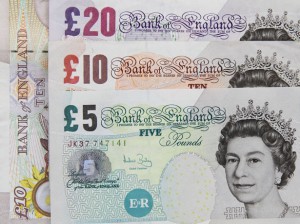 At some point in your life, if you want to own a home or nice car or start a business, you’ll probably need to borrow some money. The internet has opened up much of the market to borrowers to find the perfect financial product, and a treasure trove of knowledge exists to help the wary spender, such as this Money Advice Service guide to the difference between secured and unsecured loans.
At some point in your life, if you want to own a home or nice car or start a business, you’ll probably need to borrow some money. The internet has opened up much of the market to borrowers to find the perfect financial product, and a treasure trove of knowledge exists to help the wary spender, such as this Money Advice Service guide to the difference between secured and unsecured loans.
However some consistent mistakes still persist for inexperienced borrowers – here are five of the most common:
Not using money comparison sites
Taking on a loan with a high interest rate for a holiday, car or other luxury can actually give quite a buzz which overrides common sense, particularly when the money is spent. A little cold common sense alongside an interest calculator might soon jolt the borrower into considering their options – and certainly looking for wiser alternatives.
For example, the difference in cost between a five-year loan of £10,000 at 10 and 12% is £540, while the difference between 10-20% is an eye-watering £2,736. Do your research before leaping into a costly mistake, and that includes taking note of too-good-to-be-true introductory offers that soon give way to savage high interest rates.
Using payday loans
It’s easy to sit and judge those who take on a payday loan at high interest rates, but they are almost always people who need a quick injection of cash and don’t have the credit rating to take on a more reasonable debt. Sometimes an even worse situation arises, where one debt is being used to pay off another, and a desperate juggling act of accounts ensues.
Sometimes the burden becomes too great, as this sad Independent story reveals. Taking payday loans should be the last resort, and if used should be eliminated as soon as possible.
Not investigating alternative options
There are almost always other options than taking on a risky long-term loan with a high monthly payment. Borrowing from friends and family, selling items, and/or discussing the situation with your bank are three obvious ones. Can you work longer hours, or find an alternative loan with a lower-interest rate and transfer it?
If you do use your credit cards it might be a wise idea to set up a direct debit to pay off at least the minimum, or else risk forgetting to pay and picking up black marks on your credit rating and a fine. Even better is paying off a hefty chunk each month and clearing it out sooner rather than later, to eliminate the interest.
Unnecessarily using something valuable as collateral
Using your house or car as security for a loan, particularly if you’ve chomped through much of the mortgage, sounds like a no-lose scenario. However financial situations can change quickly and without warning because of cruel circumstances such as redundancy and medical crisis. Suddenly you could be left without a means to pay the monthly rate – and if this continues your house could be a tasty bonus for the lender.
Taking out payment protection insurance could stave off danger (although be very careful to check the conditions). At the very least call the lender to explain the situation and see if a short-term fix is possible while you arrange alternative action.
Alternatively contact charities such as StepChange, which has been inundated with new pleas for help this year across the UK.
Illogical borrowing
Another common error is simultaneously paying off a loan and also putting money in a savings account with a lower interest rate. Emotionally it feels nice to have a nest-egg of money that you’re gradually accumulating, but financially and logically it makes no sense under these circumstances. Better to use that savings fund to pay off the debt and start saving again.








